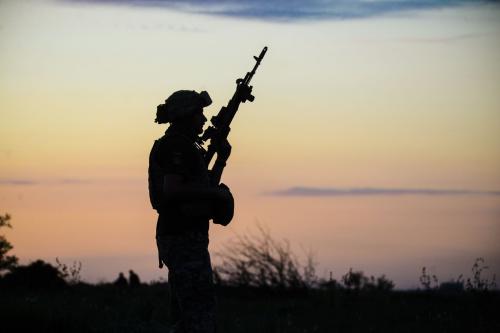The announcement of King Abdullah’s death puts Saudi Arabia in the hands of his designated successor, Prince Salman. Salman has his own health issues and faces an immediate crisis on the kingdom’s southern border in Yemen. Continuity will be Salman’s hallmark, including close ties to Washington.
Now King Salman, born Dec. 31, 1935, who is also defense minister, has been chairing cabinet meetings for several months and handling almost all foreign travel responsibilities for the monarchy since he became the heir in 2012. He has visited China, Japan, India, Pakistan, the Maldives, and France since becoming crown prince after the death of his predecessor, Prince Nayif. He has hosted a series of Saudi allies like Pakistani Prime Minister Nawaz Sharif and Egypt’s president, Abdel Fattah Al-Sisi, who paid their last respects quietly to Abdullah in the last week.
Before becoming crown prince, Salman was governor of Riyadh province for 48 years. When he became governor in 1963, Riyadh had 200,000 inhabitants; today, it has more than seven million. Salman presided over this remarkable transformation with a record for good governance and a lack of corruption. Since most of the royal princes and princesses live in Riyadh, he was also the family sheriff, ensuring any transgressions were dealt with smoothly and quietly with no publicity. He knows where all the bodies are hidden.
Salman also oversaw the collection of private funds to support the Afghan mujahideen in the 1980s, working very closely with the kingdom’s Wahhabi clerical establishment. In the early years of the war, before the U.S. and the kingdom ramped up their secret financial support for the anti-Soviet insurgency, this private Saudi funding was critical to the war effort. At the war’s peak, Salman was providing $25 million a month to the mujahideen. He was also active in raising money for the Bosnian Muslims in the war with Serbia.
Salman’s sons include the first Muslim astronaut, Prince Sultan, and the governor of Medinah, Prince Faysal. Another son, Prince Khaled, is a fighter pilot in the Royal Saudi Air Force and led the first RSAF mission against Islamic State targets in Syria last year. The family controls much of the Saudi media. All will now be up-and-comers.
Salman has his own health issues and has had a stroke. (Persistent rumors of dementia are denied by the palace.) His successor was announced in February 2013 to ensure continuity. Second Deputy Prime Minister Prince Muqrin was born Sept. 15, 1945 and was educated at the Royal Air Force College in England before becoming a pilot in the Royal Saudi Air Force. Later, he was governor of Medinah province and then head of Saudi intelligence. Muqrin is now crown prince.
Abdullah, Salman, and Muqrin are sons of the modern kingdom’s founder, Abdelaziz Ibn Saud, who had 44 recognized sons. The survivors and their heirs constitute the Allegiance Council, which Abdullah created in 2007 to help choose the line of succession. In practice it has only ratified the king’s decisions after the fact.
Muqrin is widely believed to be the last capable son of Ibn Saud. So now that Muqrin has ascended to the crown prince position the kingdom will face the unprecedented challenge of picking a next in line from the grandsons of Ibn Saud. That will raise questions of legitimacy not faced in the last century of Saudi rule.
Abdullah has been the de facto ruler of the kingdom since King Fahd suffered a debilitating stroke in 1995; he became king a decade later when Fahd passed away. A progressive reformer by Saudi standards, Abdullah gave the kingdom 20 years of stability. Salman is likely to provide continuity. The House of Saud values family collegiality and harmony highly. The two previous Saudi kingdoms in the 18th and 19th centuries were wracked by family internal squabbles which their foreign enemies exploited. Eleven of 14 successions were contested and the Saudis ended up in exile in Kuwait until Ibn Saud created the modern kingdom in 1902.
With the Arab world facing its worst crisis in decades, the royals will want to present an image of stability and strength. This is especially true with the collapse of the pro-Saudi government in Yemen, which will be Salman’s first crisis.
The Zaydi Houthi rebels who have all but disposed the pro-American government in Yemen this week have a slogan which reads, “Death to America, death to Israel, curses to the Jews and victory to Islam.” The collapse of President Abd Rabdu Mansour Hadi’s government, which openly supported American drone strikes in Yemen against Al Qaeda in the Arabian Pennisula for the last couple of years, puts a pro-Iranian anti-American Shia militia as the dominant player in a strategically important country. The Bab El Mandab, the straits between Asia and Africa, are one of the choke points of global energy and geopolitics. The leader of the Houthis gave a triumphal speech Tuesday and Iranian diplomats hailed his victory. The Houthis have fought a half-dozen border wars with the Saudis, who spent billions trying to keep them out of power.
The Houthis’ victory also ironically benefits AQAP by polarizing Yemen, the poorest country in the Arab world, between Shia and Sunni with AQAP emerging as the protector of Sunni rights. AQAP is fresh off its attack on Paris and has grown since 2009 into the most dangerous al Qaeda affiliate in the world. It is dedicated to overthrowing the House of Saud. Salman will have his hands full immediately.
This piece was originally published by The Daily Beast.



Commentary
Op-edThe Next King of the Saudis: Salman, the Family Sheriff
January 23, 2015